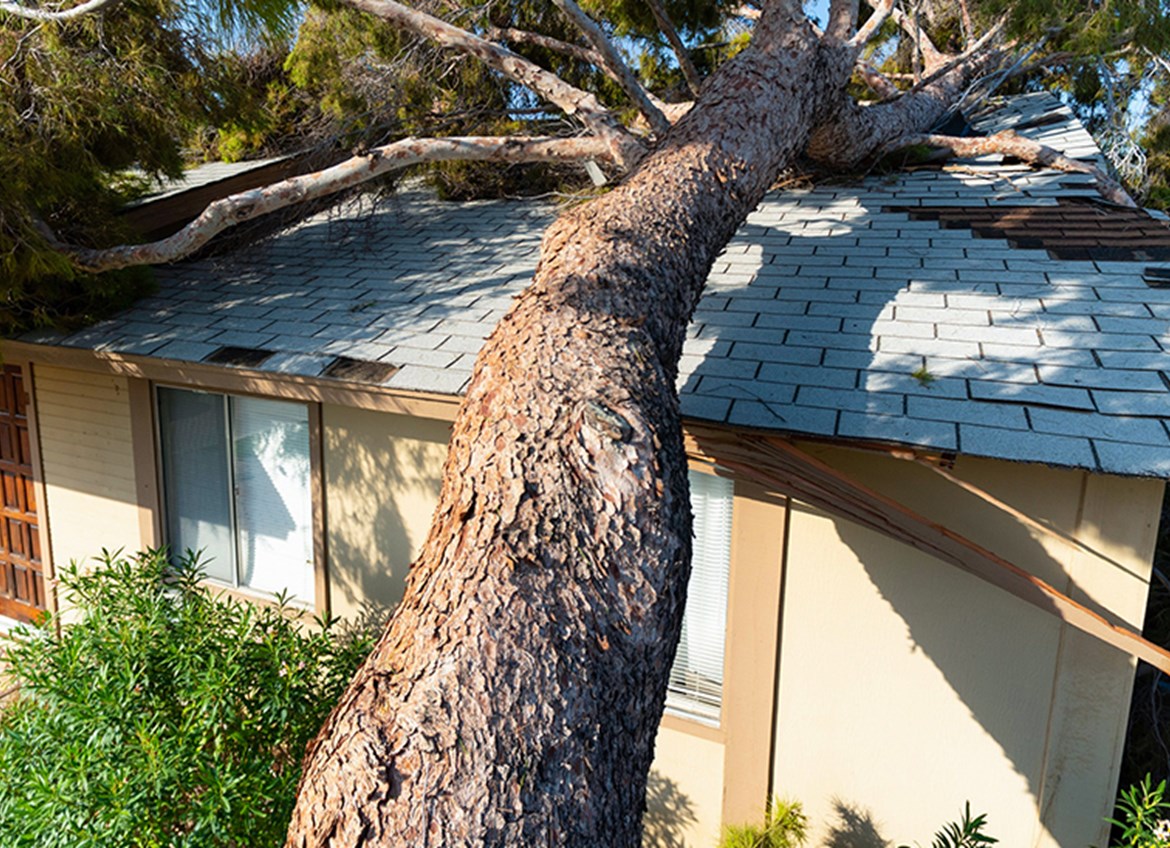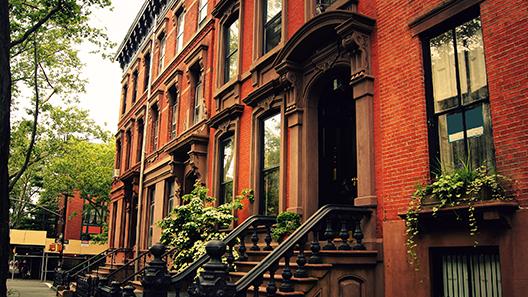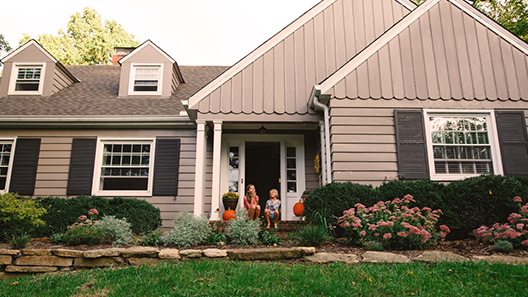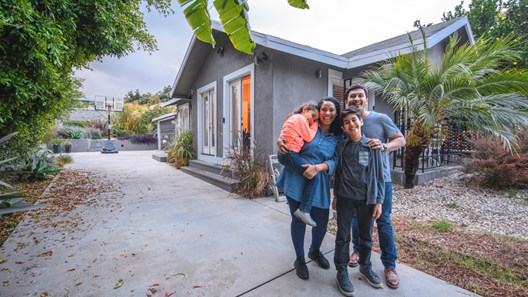Introducing Purchase Perks! Save $1,000 on closing costs when you purchase with us.
Whether you're looking for a new home, refinance your existing property, or get cash from your home's equity, we've got customized loans for your needs. Talk to a loan officer today.
A Guide to Home Insurance
Read Time: 20 Minutes
|December 15, 2022
If you had a fire, flood, tree through a window, or car through your wall, do you know what would happen if you called the insurance company? In this blog, we’ll explore what homeowners insurance commonly covers and what extended coverage you should consider.

The Key Word is “Exclusion”
Exclusions are specific types of damage or loss that your insurance will not cover – it is important to know what they are under your policy.
Named Peril Policies
Named peril policies give you a list of what will and will not be covered by your insurance. Should something happen you’ll need to prove that it is part of your named perils, or your insurance company will not pay out.
Open Peril Policies
If you have an "open peril" policy, it means that you are covered against all kinds of loss, except for the ones listed in your policy. Under open perils coverage, it is up to your insurance company to show that the damage or loss was not caused by something that is covered.
What Does Homeowners’ Insurance Not Cover?
There are a few umbrella categories that insurance policies won’t cover no matter if they are named or open peril.
Floods
You’ve probably wondered this before when watching it come down during a summer thunderstorm – the truth is that homeowners’ insurance typically doesn’t cover water damage due to natural rain, flooding from a natural source like an overflowing lake, natural seepage from the ground, a burst sewer line, or sump pump backups. However, if it has to do with your home’s equipment, like a hot water heater or refrigerator, it would be covered.
Earthquakes, Mudslides, Landslides
All of these natural or human-caused phenomena worthy of a 1970s big-budget disaster movie a la Earthquake! aren’t usually covered by homeowners’ policies. These include earthquakes, mudslides, land shockwaves, tremors, aftershocks, volcano eruptions, landslides, mudslides, sinkholes – the list goes on. Do you feel like a geologist yet?
Termites, Insects, Rats, and Pests
We aren’t talking about fur babies here – homeowners’ policies don’t usually cover any damage done by routine pests like termites, bees, hornets, bed bugs, or the little creepy crawlies we find in our bathrooms and kitchens. It doesn’t stop at needing bug spray, though – bats and birds getting stuck in your chimney, attic, or crawl space won’t usually be covered, and neither will garbage-raiding raccoons or possums taking up residence in an exterior closet.
When it comes to pests, it’ll be up to you to get rid of the pests and clean up the mess on your own. As the comedienne Jeanne Robertson said, “don’t mess with broom people.”
However, if a pest problem leads to structural damage like a leak or collapse, other portions of your policy may kick in to pay for the damage caused, but not treat the problem – you’ll then still need to pay for getting rid of the source on your own.
Mold
Mold damage coverage depends on the cause. Your homeowners’ insurance won't cover mold from long-term leaking, poor home maintenance, or natural flooding. However, if the mold is caused by an unexpected issue, like a plumbing leak, your insurance company may cover the damage if you notify them immediately.
Dog Bites
We all have that friend who claims Fluffy is just “saying hi” while their 500-pound dog snarls his teeth and growls as they struggle to hang onto the leash. It is important to remember that while homeowners’ policies usually do cover medical and legal costs associated with a dog bite, there likely are certain policy constraints in place not covering specific dog breeds or specific pets with a history of biting.
Poor Maintenance
Any insurance company will provide your insurance policy with the general expectation that the property will be kept “in working order,” meaning routine maintenance is carried out. For example, an insurance policy would cover an electrical fire stemming from a chance spark from a stove’s faulty wiring but would not cover an accident if the stove was in a kitchen that was not responsibly clean and maintained or the stove was obviously misused or neglected in terms of routine maintenance like replacing a broken handle or burners.
Power Outages or Surges
Make sure you’ve got power strips for the next big summer thunderstorm because your insurance policy without special additions won’t generally cover power surges or outages causing food to spoil or electronics to short out – the general rule is that if the cause is off your property, it is not covered. However, this also means that fire and damage causes such as electrical short-circuits or faulty wiring are covered.
Home Businesses
Home businesses require another policy outside of homeowners’ or renters’ insurance. Most insurance companies now offer separate or additional coverage for home-based businesses based on the nature of the business – naturally insurance expenses for businesses such as home daycares and therapists will be higher than an e-commerce store, as they involve inviting members of the public into the insured’s home.
Code Changes or Violations
If your home needs changes to come up to code, you aren’t in any luck when it comes to insurance. This also refers to any damages or losses caused by the enforcement of local building codes – construction, repair, remodeling, demolition, or renovation isn’t covered.
Intentional Damage
Insurance companies will not cover any damage intentionally done by a resident or family member. This goes for intentional injuries as well – your personal liability insurance will cover accidents and medical expenses, but not intentional injuries.
Public Works Damage
If the local or federal government damages or destroys your property – intentionally or unintentionally, it is not generally covered under your insurance policy.
Optional Coverage to Consider
Exclusions aren’t the be-all-end-all in some cases, though. Many insurance companies offer optional coverage to handle certain exclusions.
Water Backup
Sewage and sump pump backups are typically lumped in with floods and not included in insurance coverage, but there is an option on many policies to add water backup coverage to cover the chance of a flood from backed-up pipes or a basement malfunction and pay for the repairs.
Mold
A standard policy covers mold damage caused by a sudden event like a burst pipe or appliance failure. If a hidden pipe leaks, you may be covered. However, coverage is usually limited to $1,000. A mold damage rider raises this limit to $10,000–$50,000 and covers more mold growth causes, like wet or dry rot that develops slowly.
Earthquakes
By taking out optional earthquake insurance you extend the umbrella of your policy to cover tremors, shockwaves, and earthquakes, of course, but in some cases also landslides, mudslides, and erosion as those are considered ground movement as well.
Floods
Most insurance companies won’t offer flood insurance; however, the National Flood Insurance Program offers an independent insurance policy that covers floods as specialty coverage as well as links to insurance companies that do offer flood insurance.
Safe Rather Than Sorry
This is a question we usually don’t explore until we really need to – it isn’t fun to think about! However, by being prepared, knowing your options, and what your coverage really covers is an essential step in being a responsible renter or homeowner. Maybe it is time to give your insurance company a call?
Learn more in our other educational series.
We’ve assembled a treasure trove of jargon-free information to demystify home-financing and arm you with valuable insights and actionable options.
Browse our complete library of resourcesWhy Newrez?
Newrez believes the lending business shouldn't just be about home loans - it should be about homeowners. That's why our employees get to know our customer's real needs, through final closing, and beyond.
-
Industry leading loan options
-
Simple pre-qualifications and application processes
-
Loans for everyone, from seasoned investors to first-time buyers
-
Putting power back into underserved communities



